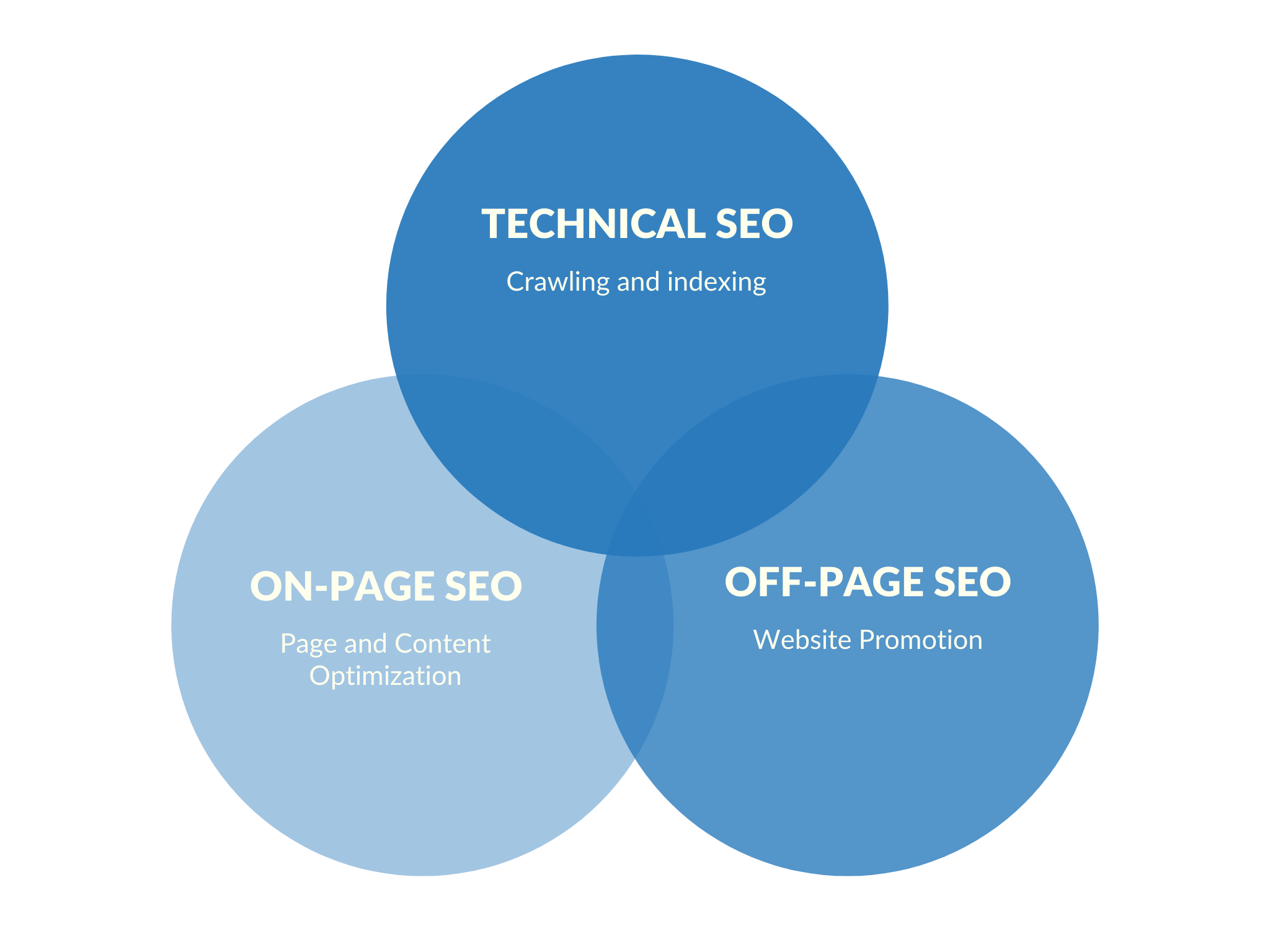What is SEO and Why It is Crucial for Your Business Success
SEO or Search Engine Optimization is the process of increasing the quality and quantity of website traffic by improving your online visibility. As more customers rely on search engines to find local businesses, products and services, having a good SEO strategy is essential for business growth and success. In this article, we will explain what SEO is, how it works and why it is so important for any company having an online presence.
Understanding the Fundamentals of SEO
SEO involves optimizing various elements of your website to achieve higher search engine rankings. The main factors search engines like Google look at include:
Content Quality and User Experience
Search engines are designed to understand user intent and deliver the most relevant results for any given search query. High-quality, informative content that answers user questions is key. The content should be well-structured, easily scannable and optimized for both readers and search engines. Other user experience factors like site speed and responsiveness also impact rankings.

Keyword Research
Keyword research helps identify the most relevant and commercially valuable keywords or search queries for your business. Proper keyword analysis gives insights into demand, competition and how to structure content, tags and page titles for search intent. Identifying long-tail keywords and topic clusters is important.
Technical SEO
Technical SEO checks key on-page elements like page titles, meta descriptions, image alt text, heading structure, internal linking etc are optimized to rank for targeted keywords. Off-page factors like link building, site speed, mobile friendliness are also important from technical standpoint. Regular technical audits help fix issues.
Local SEO
If you run a local business, optimizing for local search queries can drive more local customers. Local SEO involves claiming and verifying business listings, optimizing business pages with localized content and citations from local directories and review sites. Local business listings must be updated consistently.
Benefits of Implementing an SEO Strategy
A well-optimized SEO strategy has far-reaching advantages for businesses:
Increased Visibility and Traffic
Better visibility in organic search results translates directly to more qualified traffic from search engines. SEO improves your digital footprint and brings relevant customers to your website.
Higher Conversion Rates
SEO brings highly targeted traffic with commercial intent. Studies show conversion rates from organic traffic tend to be higher than other channels.
Brand Awareness and Trust
Consistent top rankings build brand awareness and reinforce credibility and trust with customers over time.
Lower Cost than PPC
SEO has no cost-per-click fees which makes it a more sustainable marketing channel compared to pay-per-click ads over the long run.
Supports Other Marketing Efforts
SEO complements other activities like content marketing, social media etc by driving awareness and traffic to your brand and offerings. A strong SEO strategy is therefore crucial for any business to efficiently reach customers, generate leads and increase overall revenues through organic search traffic. I hope this gives you a good overview of the SEO basics and why it is important for your company’s online success.
Developing an SEO Strategy
With the fundamentals clear, let’s discuss how to develop an effective SEO strategy. Here are the key steps:
Competitive Analysis and Keyword Research
Start by analyzing top competitors, what keywords they are ranking for and how their content is optimized. This gives insights into opportunities and gaps. Carry out comprehensive keyword research to identify top target keywords and related long-tail keywords.
Content Planning
Develop an editorial calendar for your SEO content. Plan content types, topics, formats and publish frequency. Make sure all planned contents are optimized for target keywords identified in research.
Technical Setup and Optimization
Check your site architecture and on-page SEO elements like titles, meta descriptions, headers etc are optimized as per best practices. Improve site speed and technical SEO factors like HTTPS, structured data, mobile friendliness etc.
Link Building Strategy
Developing natural, relevant backlinks from external authoritative sources help boost domain authority and trust with search engines over time. Plan link building outreach around top target keywords.
Tracking and Measurement
Install Google Search Console, Analytics and tag management system to track SEO performance. Define key performance indicators (KPIs) to measure and analyze ranking fluctuations, traffic and conversion over time.
Continuous Optimization
SEO is an iterative process. Monitor results and be nimble in adapting strategy based on algorithm/SERP changes. Focus on continuously enhancing experience through fresh relevant content and improving technical aspects. With a well-planned and diligently executed SEO strategy focusing on above factors, you can expect steady improvements in search rankings and organic traffic leading to greater business success.
Local SEO: Reaching Customers Near You
If you run a local business, optimizing for local search intent should be a top priority in your SEO strategy. Here are some best practices for local SEO success:
Claim and Verify Local Listings
The first step is to claim, verify, update and monitor your business listings across all major local Directories like Google My Business, Bing Places, Apple Maps etc. Keep essential info like address, phone number consistent.
Local Citation Building
Get high-quality citations and links from other authoritative local business directories, companies, chambers and associations related to your geo-location and industry. Regularly update business info here as well.
Geo-Targeted Content
Produce hyper local content optimized for geo terms related to your target areas. Discuss local events, offers, popular spots to boost relevancy for those geo search queries.
Local Review Generation
Encourage happy customers to leave online reviews on your listings and third-party sites. Respond helpfully to both positive and negative reviews to build trust.
Local Analytics Tracking
Closely monitor local search performance and traffic sources using Google Search Console’s location reports. Get insights on top queries and competitors to enhance strategies. With focus on above pillars of local SEO, brick and mortar companies can achieve higher local search rankings and drive more customers through their doors.
Measuring SEO Effectiveness and KPIs
Define metrics that align with business goals to properly assess SEO efforts and returns on investment. Here are some common quantifiable KPIs:
- Organic Traffic & Ranking Changes: Monitor traffic volumes and fluctuations in rankings for target keywords. Set baseline and targets for improvement.
- Lead Generation & Conversions: Track number of leads and conversions generated specifically from organic search. Conversion rate should ideally increase over time.
- New vs. Repeat Visitors: Analyze proportion of one-time vs. returning users from organic to understand brand impact.
- Share of Voice: Calculate percentage of top search results captured for competitive keywords.
- Backlink Profile: Track number and quality of new backlinks gained monthly from outreach.
- Customer Feedback: Gauge brand awareness and perceptions through surveys and reviews over time.
Review metrics monthly or quarterly against targets and adjust strategy based on gaps and progress. Data-driven decision making is key to measurable SEO success.
Tips for Effective SEO Execution
Success with SEO requires dedication, resources and properly applying strategies discussed above. Here are some additional tips for execution excellence:
- Develop SEO knowledgeable in-house team or allocate budget for agency guidance to ensure best practices.
- Integrate SEO activities into workflows versus standalone project to sustain long-term impact.
- Encourage collaboration between SEO, content, marketing and development for coordinated efforts.
- Be patient as results may take months to reflect. Stay committed to continuous optimization process.
- Monitor algorithm updates and keep strategies consistent with current best practices guidelines.
- Automate reporting, audits and minor enhancements to scale efforts over time.
Proper research, planning, dedicated resources and regular optimizations are key to powering your website to the top rankings and driving organic growth through search visibility. SEO is a proven means to help any company achieve digital success when done right.
